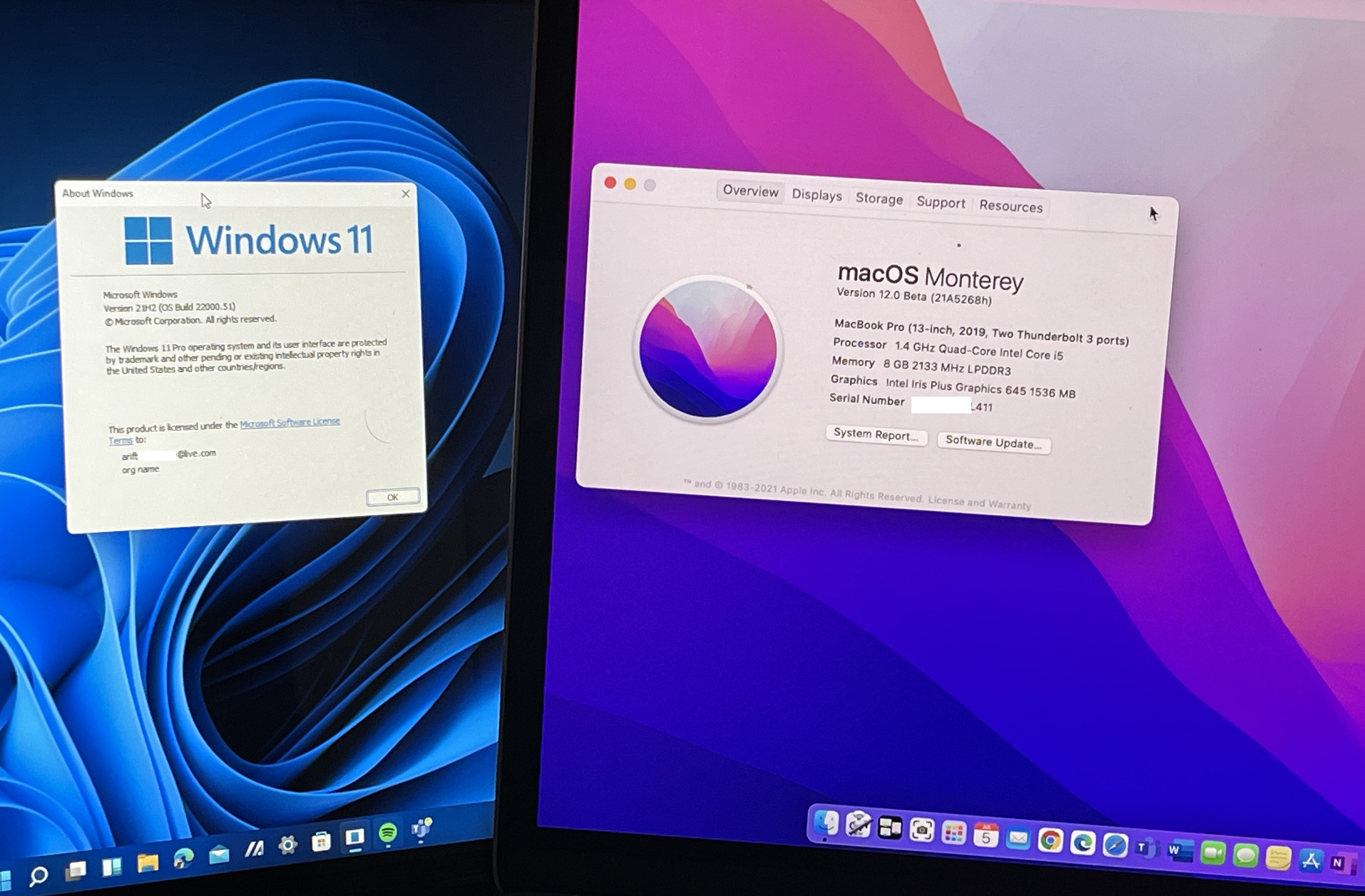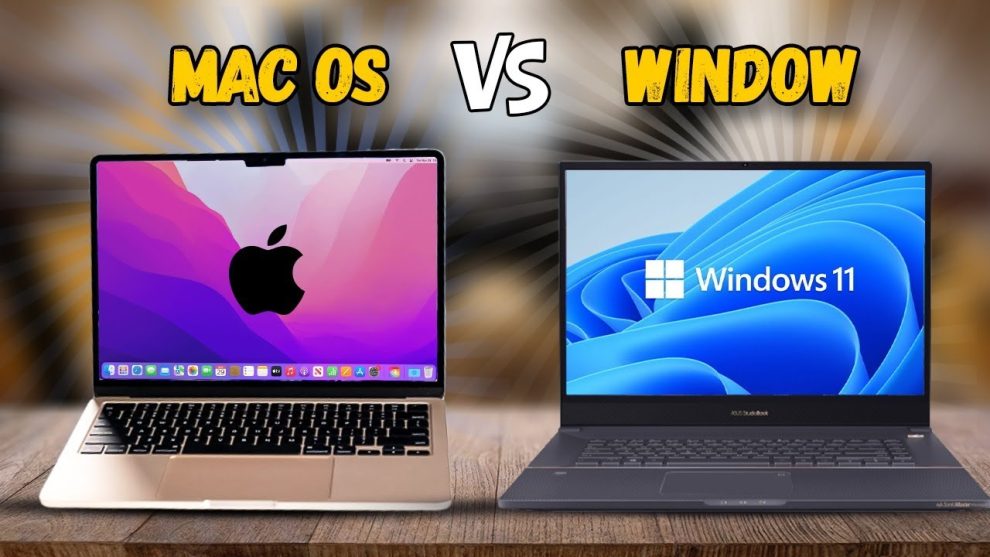The operating system is the foundation upon which a computer’s functionality is built. For many, the choice between Windows and macOS comes down to personal preference and specific needs. In this comprehensive comparison, we’ll delve into the key differences between Windows 11 and macOS, helping you make an informed decision.
Design and Interface
- Aesthetic: Windows 11 has adopted a more minimalist and modern design, with rounded corners and a simplified Start menu. macOS, on the other hand, has maintained its iconic clean and intuitive interface.
- Customization: Both operating systems offer customization options, but macOS generally provides a more extensive range of personalization features, such as the ability to change accent colors and app icons.
- Touchscreen Integration: Windows 11 is designed to work seamlessly with touchscreen devices, while macOS has historically focused on trackpad and mouse input. However, macOS has been making strides in touchscreen support.
App Ecosystem
- App Store: Both Windows 11 and macOS have their respective app stores, the Microsoft Store and the Apple App Store. While the Microsoft Store has expanded its offerings, macOS’s App Store often has a more curated selection of apps.
- Compatibility: Windows generally offers better compatibility with a wider range of software, including legacy applications. macOS, however, has a strong focus on its native apps and often provides a more integrated experience.
- Android Apps: Windows 11 supports Android apps through the Amazon Appstore, offering a broader range of mobile applications. macOS does not have native Android app support.

Performance and System Requirements
- Hardware Requirements: macOS typically has lower system requirements compared to Windows 11, especially in terms of processor and memory.
- Performance: Both operating systems are known for their performance, but macOS often provides a more streamlined and responsive experience, especially on Apple hardware.
- Gaming: Windows 11 generally offers better gaming performance and compatibility due to its wider support for gaming hardware and software.
File Management and Organization
- File Explorer: Windows 11’s File Explorer offers a traditional file management interface with customizable views and options. macOS’s Finder has a more modern and intuitive design, with features like Quick Actions and Stacks.
- Cloud Integration: Both operating systems integrate seamlessly with cloud storage services like OneDrive and iCloud, allowing you to access and manage your files across devices.
Security and Privacy
- Security Features: Both Windows 11 and macOS prioritize security, with built-in features like firewalls, antivirus protection, and secure boot. However, macOS has a reputation for being more secure due to its closed ecosystem and tighter integration with Apple hardware.
- Privacy: Apple has a strong focus on user privacy and has implemented various measures to protect user data. While Microsoft has also made strides in privacy, macOS is often seen as a more privacy-conscious option.
Ecosystem and Integration
- Apple Ecosystem: macOS is tightly integrated with other Apple products like iPhones, iPads, and Apple Watches, offering seamless interoperability and features like AirDrop and Handoff.
- Microsoft Ecosystem: Windows 11 is part of the broader Microsoft ecosystem, integrating with other Microsoft services like Office 365, Xbox Game Pass, and Teams.
Conclusion
The choice between Windows 11 and macOS ultimately depends on your individual needs, preferences, and the ecosystem you’re most comfortable with. Windows 11 offers a more traditional computing experience with wider software compatibility and gaming support. macOS provides a streamlined and often more intuitive interface, along with a strong focus on privacy and integration with other Apple devices. Consider factors like your existing devices, software requirements, and preferred workflow when making your decision.
















Add Comment